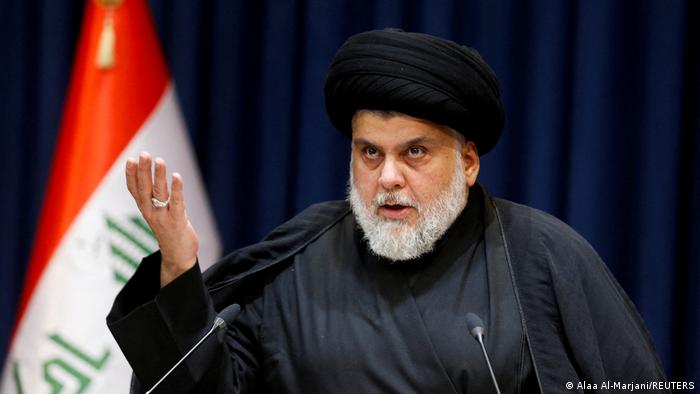
-
Published: 15 October 2022

After a year of paralysis and division through the election of a new President of the country and moving forward on the path to overcoming the stalemate, it appears that the
pursuit of the political parties in Iraq to accelerate the political process will run counter to the stance of the Sadri movement rejecting these steps, as Mohammed Saleh of Iraq, close to the leader of the movement, Muqtada 'a al-Sadr, announced his refusal to participate in the next government.
A year after the early legislative elections, the Iraqi Parliament on Thursday elected 78-year-old settlement candidate Abdul Latif Rashid as President of the Republic, who in turn tasked Mohammed Shiya al-Sudan to form a new Government of the country
The Sudan was nominated for the post by the Coordination Framework, which includes several blocs, including the rule of law led by former Prime Minister Nuri al-Maliki and the Fatah bloc representing pro-Iranian popular mobilization factions.
In a statement posted on social media, Saleh spoke of the existence of "unambiguous endeavors to satisfy the current and silence the voice of the nation", referring to media statements and experts talking about the possibility of proposing ministerial positions on the Sadri stream.
"In the midst of forming an experienced coalition government that has not and will not meet the aspiration of the people... After the attempts to form a national majority government were scuttled... We stress our unequivocal, clear and unequivocal rejection of the participation of any of our affiliates... in this government configuration chaired by the current candidate or other old or corrupt faces and authority ".
The new mandate holder has had 30 days since his assignment to propose the new government configuration. In a speech on Thursday night, Sudan expressed its readiness "to cooperate fully with all political forces and societal components, whether represented in the House of Representatives or those active in the national space".
At the heart of the crisis over the past months has been the disagreement between the two major Shia camps: the Sadri stream on the one hand, and the coordination framework on the other.
The nomination of Mohammed Shiaa 'a al-Sudan's coordination framework in the summer was a spark that ignited tensions between the frame and the Sadr stream, whose supporters picketed Parliament for about a month.
Tension culminated on 29 August, when thirty of his supporters were killed in clashes inside the Green Zone with forces from the Army and the People's Mobilization Army, pro-Iranian Shia armed factions that are members of State organs.
